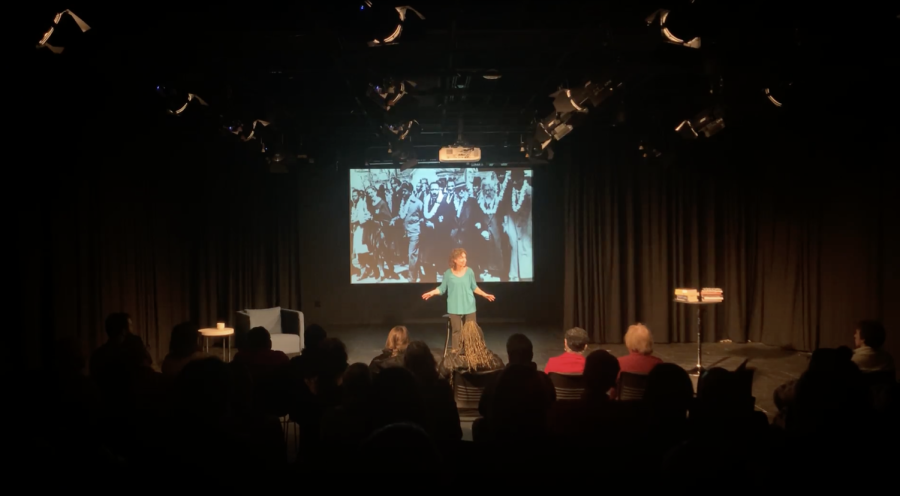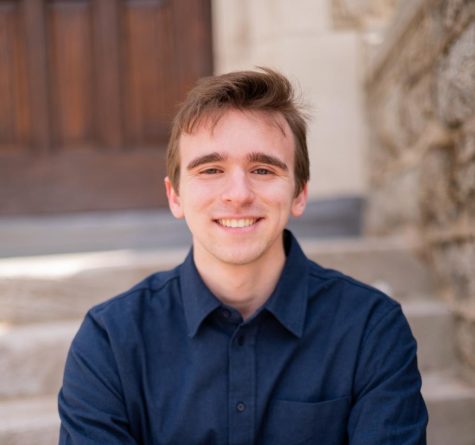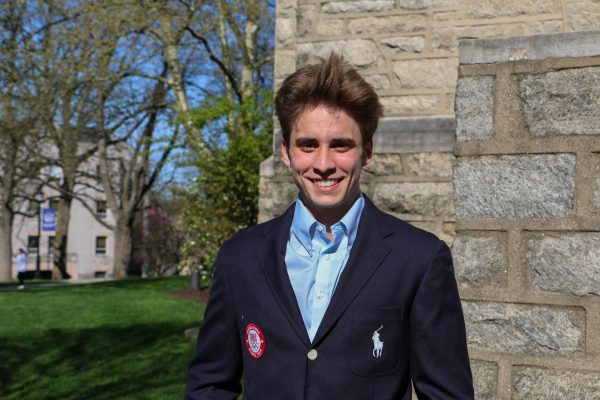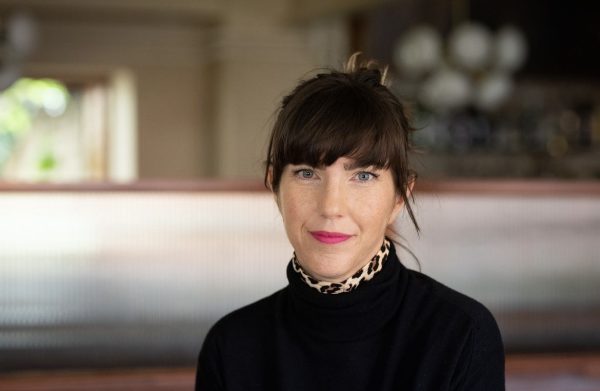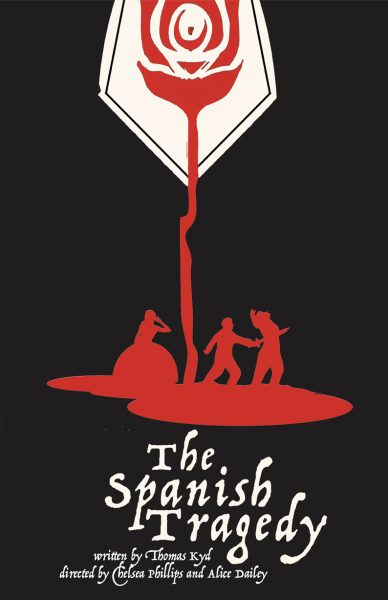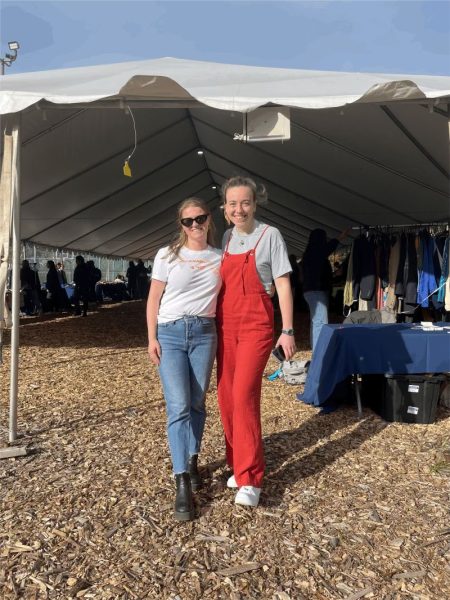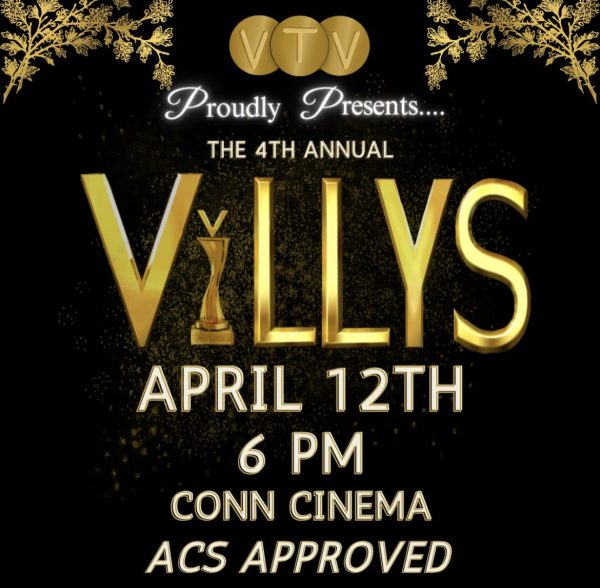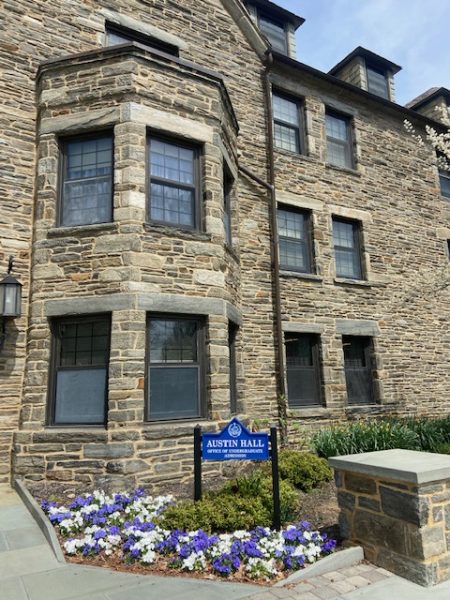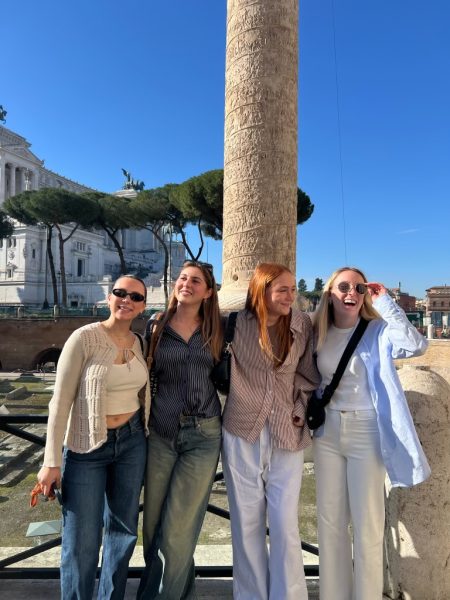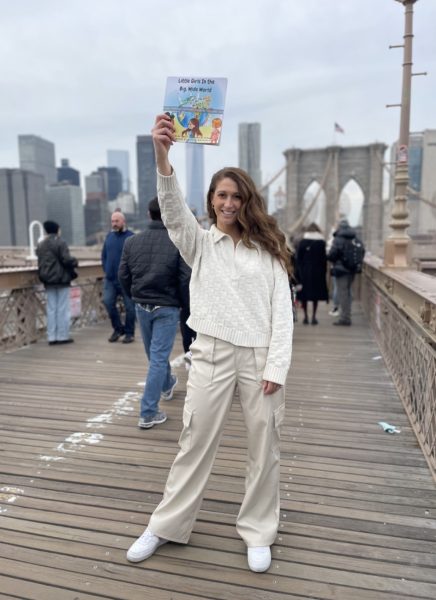Communication Department’s Dr. Heidi Rose Performs “A Letter to Ava DuVernay”
Dr. Heidi Rose performed “A Letter to Ava DuVernay” on Monday, Mar. 28 at the Garey Hall Studio.
April 6, 2022
On the night of Monday, March 28, the Communication Department was treated to an impressive 30-minute uninterrupted performance by its Chairperson, Heidi Rose, entitled: “A Letter to Ava DuVernay.”
Rose is on sabbatical this semester but returned to the University to deliver this powerful letter. The performance took place at the Garey Hall Studio, which was filled with student and faculty attendees.
As the title suggests, the performance was addressed toward famous African-American filmmaker Ava DuVernay, yet Rose began by spending a minute reflecting on a quote by Jewish writer Elie Wiesel: “Forgetfulness leads to exile, memory to redemption.” If the audience did not see the connection between Wiesel and DuVernay, it would very soon become clear.
Rose showed the audience photos of Rev. Martin Luther King Jr.’s 1965 march on Selma, Alabama, followed by DuVernay’s representation of the historical event in her 2014 film “Selma.” One glaring difference — that is, an absence — distinguishes the cinematic representation from the original: Rabbi Abraham Joshua Heshcel stood right beside King in 1965, but is missing from DuVernay’s “Selma.”
Heschel’s absence is particularly glaring, as DuVernay made a point to include other religious figures, like Greek Orthodox Archbishop Iakovos in her film.
This struck a nerve with Rose, who looked up to Heschel throughout her life as a leader for the Jewish community and a fearless advocate for civil rights. She wondered if Heschel’s absence (and the general absence of scores of rabbis in “Selma”) was deliberate and what it says about the current state of Black-Jewish relations in the United States.
“The absence dredged up fear in me that has been building for some time, Ms. Duvernay,” Rose said. “From everything I’ve learned, one messy reality is post-Civil Rights deterioration of Black and Jewish relations that has been continuing in one way or another for decades. In 1967, James Baldwin said Black people are antisemitic because they’re anti-white.”
At this point, Rose delved into the broader schism between Black and Jewish Americans and its connection to iconic African-American writer Baldwin. The schism developed in the late 1960s, partially because Black Power and Nation of Islam leaders saw Jews as white oppressors rather than allies. In some ways, Baldwin shared this view, but in others, Baldwin was sensitive to the Jewish struggle and could relate it to his own hardships.
A little more than 50 years later, Rose worries about rising antisemitism and racism, and the ways in which this continuing schism leaves all groups more vulnerable. Still, she remains hopeful.
“There’s the groundbreaking alliance between US senators Rev. Raphael Warnock and Jon Ossoff,” Rose said. “Warnock, the first African American senator from Georgia, Ossoff the first Jewish senator from Georgia. They’re forging a coalition on voting rights among other vital issues and intentionally invoking the power of the relationship between Dr. King and Rabbi Heschel. I hope we all can do the same, because the stakes are high.”
Rose’s letter was not merely prose. It was a performance through and through, complete with acting and prop placement.
“I didn’t want to do a TED Talk,” Rose said after her performance.
Rose took on the accents and mannerisms of both Heschel and Baldwin to bring their perspectives to light.
The stage consisted of three main parts. On the right was a small table, stacked with Rose’s books about African-American and Jewish American relations. It was at this table where Rose began her performance and reflected on her pertinent research, particularly “Blacks and Jews in America: An Invitation to Dialogue” by Terrence L. Johnson and Jacques Berlinerblau. In the center was a stool upon which Rose could both impersonate Rabbi Heschel and bare truths about her own experiences and her relationship with her Jewish identity. On the left was a sofa chair upon which Rose could impersonate Baldwin’s sharp and relaxed manner of speaking.
The performance element was of vital importance to Rose.
“As I wrote, I realized I didn’t want to talk about Heschel,” Rose said. “I wanted to show him. I think as a performer, one of my strengths and interests lies in embodying others — creating characters who, through me, enter conversation with each other and with me, and thus with the audience.”
After the performance, Rose engaged in a talkback session with the audience in which she could respond to questions and comments.
Both at Monday’s talkback and later in the week, attendees mostly expressed positive reactions to the performance.
One student in attendance was junior Anthony Grasso.
“The passion and emotion that Dr. Rose exuded through her performance was simply remarkable,” Grasso said. “I am so grateful to have had this opportunity to learn through such a unique and creative medium about the complexities of this topic in intercultural relations that is talked about so little. I truly admire Dr. Rose’s openness to addressing such a difficult topic in her performance.”
On the other hand, some students felt uncomfortable with Rose questioning a Black-directed Black story, or felt that the performance could have embodied more of a call-to-action.
Rose’s letter comes after months of preparation.
She began writing in summer 2021 and performed a shorter, 10-minute draft of the letter at the National Communication Association in Seattle in November 2021. Originally, discussion of Baldwin was not part of this draft.
“Following a really generative discussion about it at the conference, I started diving into expansion and revision in January 2022,” Rose said. “That’s when Baldwin’s excerpts were added.”
As Rose began to flesh out these expansions and revisions, she felt it was time for another public performance.
“By early March, I decided I should stage it and share it with an audience, and if I waited any longer than late March or early April, I’d miss my chance this semester,” Rose said.
While Rose’s letter on March 28 was cohesive, she said that it is still a work-in-progress and that she is seeking constructive feedback.
All in all, it has been a difficult process to work on this performance due to the topic’s complicated nature.
“This was in many ways the toughest performance I’ve ever worked on,” Rose said. “I’ve written and performed very personal pieces for years, but never a topic that is so fraught and challenged by extremely different life experiences.”
Rose maintained that despite such difficulties, her performance brings issues to the forefront that are in critical need of discussion.
“The urgency for us to work together has never been stronger in terms of the looming challenges to civil rights and our democracy’s foundation, and the dangerous threats from white supremacy (which targets Jewish people as centrally as people who are BIPOC and LGBTQ+),” Rose said. “But I know this performance opened more possibilities for conflict than anything I’ve done in the past. There have been moments when I questioned or second-guessed myself, and in those moments, I’ve tried to focus on how I always convey to students the importance of trying things that scare you — and that I need to do the same.”

